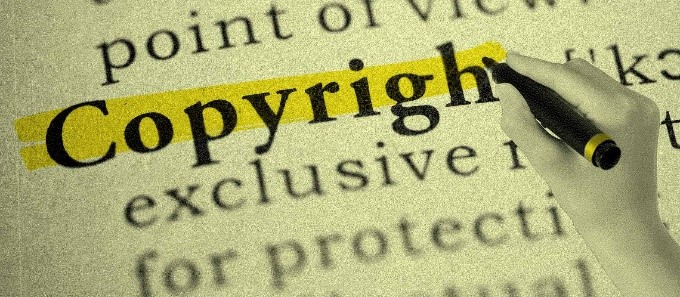
Disclaimer: Copyright infringement not intended.
Context
- Anushka Sharma, the actor, is the first owner of copyrights created in her artistic performances and is to be held liable to pay sales tax for brand endorsements and for comparing award functions - the Sales Tax Department stated in the affidavit submitted to the Bombay High Court.
What is the case about?
- Actor Anushka Sharma had moved the Bombay High Court challenging the Mazgaon sales tax deputy commissioner’s orders raising dues for 2012-13 and 2013-14 under the Maharashtra Value Added Tax (MVAT) Act.
.jpeg)
Why was the sales tax levied against Sharma?
- Sharma’s remuneration is from tripartite agreements with Yash Raj Films (YRF) which was her agent and a third party for ad films, stage shows etc.
- As per the tax department, Sharma, who has the “first owner of copyright” on all her artistic work is selling that right through these agreements and hence is liable to pay sales tax and not just treat it as personal income.
What are performer’s rights?
- Section 38 of the Copyright Act, 1957, as amended in 2012, recognises “Performer’s Rights” where the performer engages in any performance including, literary work, song, movie and same subsists in the concerned person for 50 years from the “beginning of the calendar year next following the year in which the performance is made”.
- This amendment was brought in 2012 to protect artists For example, if copyright of a song is licensed, it would not just be the producer who would get a royalty but the singer and lyricist would also be entitled for a share.
- Crucially, the rights under this provision cannot be waived off or diluted through a contract, which means performers’ rights cannot be transferred or sold through an agreement. This was done to ensure production houses cannot simply buy out an artist and her work remains with her.
Sales tax
- Sales tax is an indirect tax charged on the sale of goods affected by individuals and/or entities engaged in selling activities.
- This is now replaced by the Goods and Services Tax. Income tax, on the other hand, is a direct tax paid on income generated.

What is copyright?
- Copyright is a type of intellectual property right.
- Authors who have original works are all awarded copyright safeguards under Indian law.
Copyright Law in India
- The concept of copyright in India is governed by the Indian Copyright Act, 1957, as modified from time to time, and the Indian Copyright Rules, 1958 (Rules).
- The Copyright Act of 1957 was India’s first copyright law following independence, and six amendments have been made since then. The Copyright (Amendment) Act 2012, which was passed in 2012, was the most recent amendment.
- The objective of this copyright law is mainly twofold:
- First to assure authors, composers, artists, designers and other creative people, who risk their capital in putting their works before the public, the right of their original expression, and
- Second to encourage others to build freely upon the ideas and information conveyed by a work.
Subject matter of copyright
All subject matters protected by copyright are called ‘works’. Thus according to Section 13 of The Copyright Act 1957, it may be subjected for the following works:
- Original Literary Work (includes computer programming, tablets, and compilations including computer databases).
- Original Dramatic work,
- Original Musical work,
- Original Artistic Work,
- Cinematography films, and
- Sound recordings.
Rights of the copyright holder
In the Copyright Act, 1957, the owner possesses the negative rights which are to prevent others from using his works in certain ways and to claim compensation for the usurpation of that right. In this Act, there are two types of rights given to the owner:
- Economical rights;
- Moral rights.

Economic rights
This right is also known as the Exclusive Rights of the copyright holder provided under Section 14. In this Act different types of work come with different types of rights. Such as:
In the case of original literary, musical, and dramatic work:
- Right to reproduce;
- Right to issue copies;
- Right to perform at public;
- Right to make cinematography and sound recording;
- Right to make any translation;
- Right to adaptation; and
- Right to do any other activities related to the translation or adaptation.
In the case, of computer program work:
- Right to do any act aforesaid mentioned; and
- Right to sell, rent, offer for sale of the copyrighted work.
In the case of artistic work:
- Right to reproduce;
- Right to communicate;
- Right to issue copies;
- Right to make any cinematography and sound recording;
- Right to make an adaptation; and
- Right to do any other activities related to the translation or adaptation.
In case of a cinematograph film work:
- Right to sell, rent, offer for sale of the copyrighted work; and
- Right to communicate.
In the case of a sound recording work:
- Right to communicate;
- Right to issue copies; and
- Right to sell, rent, offer for sale of the copyrighted work.
Moral rights
- In addition to the protection of economic rights, the Copyright Act, 1957 conjointly protects ethical rights, that is due to the actual fact that a literary or inventive work reflects the temperament of the creator, just as much as the economic rights reflect the author’s need to keep the body and the soul of his work out from commercial exploitation and infringement.
- These rights are supported by Article 6 of the Berne Convention of 1886, formally referred to as a world convention for the protection of literary and inventive works, whose core provision relies on the principle of national treatment, i.e. treats the opposite good as one’s own.
Section 57 of The Copyright Act,1957 recognize two types of moral rights which are:
- Right to paternity– which incorporates the right to assert the authorship of the work, and the right to forestall others from claiming authorship of his work; and
- Right to integrity- which incorporates right to restrain, or claim of damages in respect of any distortion, modification, mutilation, or any other act relates to the said work if such distortion, multiplication or alternative act would be prejudiced to claimant honor or name.

Criminal remedies for infringement
- Section 63of the Copyright Act provides for criminal remedies if there is any copyright infringement.
For infringement of copyright, the criminal remedies provided under Section 63:
- Imprisonment, not less than 6 months which may extend up to 3 years;
- Fine may not be less than 50,000 which may extend up to 2,00,000;
- Search and seizure of copyrighted goods; and
- Delivery of copyrighted goods to the copyrighted owner.
In the case of repeat offenders, minimum punishment terms of 1 year and fine of 1 lakh however, the highest punishment will be the same as the first time offender.
Fair Dealing
Fair dealing is the statutory limitation on the exclusive right of the copyright owner which permits reproduction or use of copyrighted work in a manner that otherwise would have constituted infringement. This law is given under Section 52 of the Copyright Act,1957 according to which the free uses can be made for any work except computer program for the purposes:
- For private and personal use including research,
- For criticism and review,
- For reporting of current events or issues including lectures in public,
- For broadcasting in cinematographic films or by posting photographs,
- For reproduction and reporting of any judicial proceeding,
- For reproduction, or publication of any kind of work prepared by the secretariat of a legislature,
- For reproduction of any kind of work in a certified copy made or supplied accordance with any law,
- For reading and recitation of any literary or dramatic work in the public domain,
- For publication of any non-copyright matter bonafide intended for the use of educational institutes, and
- For recording any sound by the owner of the right in the work.
Conclusion
- The copyright law is considered as an essential law of protection for a country because it enriches its national cultural heritage of it. However, higher the level of protection given to literary, dramatic, musical or artistic work in any country, automatically higher is the number of intelligent creation, i.e. higher its renown.
- Thus, in the final analysis, we can say for economic, cultural and social development, it is the basic perquisites.
|
PRACTICE QUESTION
Q. Which of the following statements are correct in reference to Copyright Laws in India?
a) According to Section 52 of the Copyright Act,1957 free uses can be made for any work for the purposes of private and personal use including research.
b) Moral/Ethical right under the Copyright Act, 1957 are supported by Article 6 of the Berne Convention of 1886.
c) According to Section 13 of The Copyright Act 1957, it may be subjected for Original Literary Work that includes computer programming, tablets, and compilations including computer databases.
d) Exclusive Rights of the copyright holder provided under Section 14 of the Copyright Act, 1957 includes the right to sell, rent, or offer for sale of the copyrighted work in the case of sound recording work.
1. a, b and c
2. b, c and d
3. a, b and d
4. All of the above statements are correct.
Correct Answer: Option 2
Note: According to Section 52 of the Copyright Act,1957 free uses can be made for any work for the purposes of private and personal use including research any work except computer program.
|

https://indianexpress.com/article/explained/explained-law/anushka-sharma-sales-tax-case-bombay-high-court-copyright-8533487/











